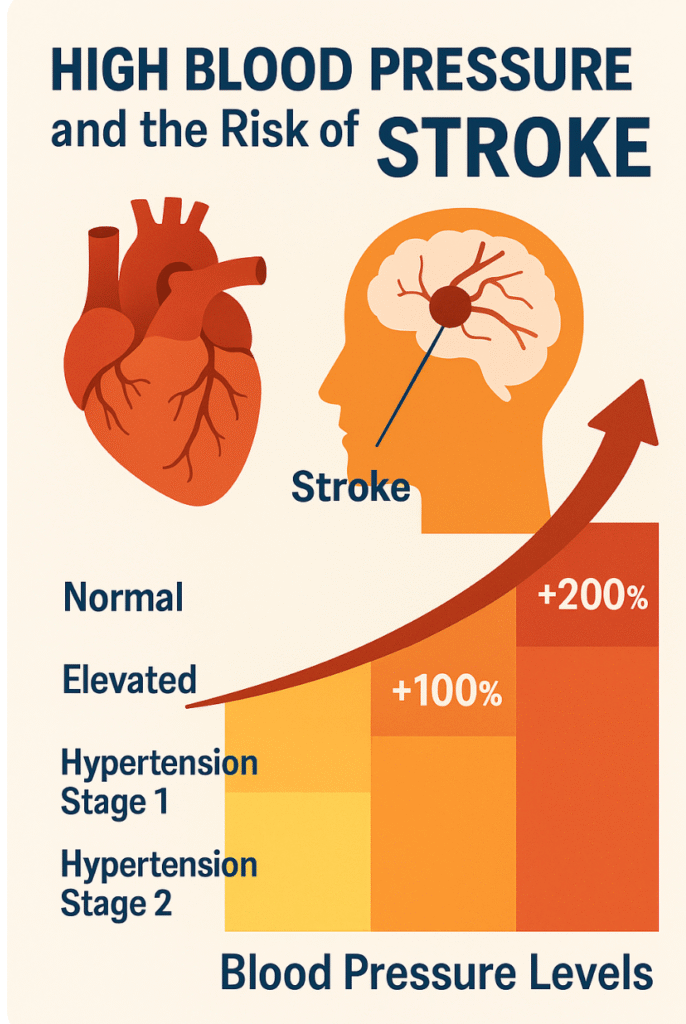High blood pressure, or hypertension, is one of the most significant risk factors for stroke worldwide. According to the World Health Organization (WHO), nearly 1.28 billion adults globally suffer from hypertension, and many remain undiagnosed or untreated. This silent condition damages blood vessels and the heart over time, dramatically increasing the likelihood of stroke and other cardiovascular diseases.
Understanding the Link Between Hypertension and Stroke
1. How Hypertension Affects the Brain
When blood pressure is consistently high, arteries lose their elasticity, making it harder for blood to flow smoothly. This can cause:
- Ischemic stroke – when blood clots block the flow of oxygen to the brain.
- Hemorrhagic stroke – when weakened blood vessels rupture and bleed into brain tissue.
Both outcomes are life-threatening, and long-term damage can include paralysis, memory loss, and difficulty speaking.
2. Stages of Blood Pressure and Stroke Risk
- Normal (below 120/80 mmHg): Minimal stroke risk.
- Elevated (120–129/<80 mmHg): Early warning sign, requiring lifestyle changes.
- Hypertension Stage 1 (130–139/80–89 mmHg): Risk of stroke begins to rise significantly.
- Hypertension Stage 2 (140+/90+ mmHg): Risk doubles or triples compared to those with normal readings.
The American Heart Association (AHA) reports that people with uncontrolled hypertension are seven times more likely to have a stroke compared to those with healthy blood pressure levels.
Prevention and Lifestyle Adjustments
1. Diet and Nutrition
A balanced diet rich in vegetables, fruits, whole grains, lean proteins, and reduced salt intake can help control blood pressure. The DASH (Dietary Approaches to Stop Hypertension) diet has been proven to lower blood pressure and reduce stroke risk.
2. Physical Activity
Regular aerobic exercise (e.g., brisk walking, cycling, swimming) strengthens the heart and reduces blood vessel stress. The CDC recommends at least 150 minutes of moderate activity per week.
3. Stress and Sleep Management
Chronic stress and poor sleep elevate blood pressure. Mindfulness, yoga, and proper sleep hygiene can significantly reduce hypertension risk.
4. Medical Management
For those already diagnosed with hypertension, regular monitoring and adherence to prescribed medications are essential. Antihypertensive drugs, when combined with lifestyle changes, can lower the risk of stroke by more than 40%.
Scientific References and Resources
- World Health Organization: Hypertension
- American Heart Association: Understanding Blood Pressure Readings
- CDC: High Blood Pressure and Stroke
🇰🇷 Premium Korean Ginseng Online Shop







